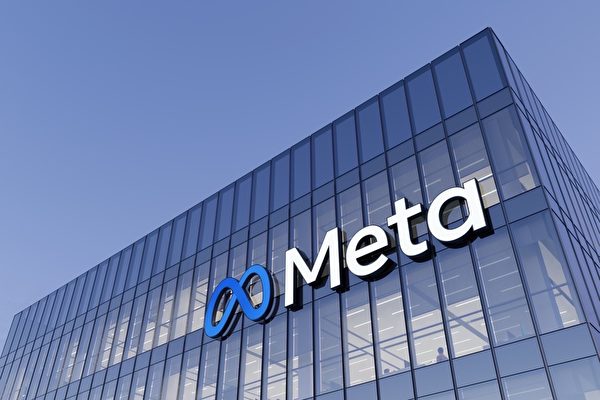
Recently, the news that Meta poached former Apple AI leader Ruoming Pang with an annual salary of over $200 million shook Silicon Valley. This figure not only sets a new record for executive compensation in the industry, but also reflects the cruel nature of talent competition in the global AI arms race. Meta has incorporated this Chinese AI expert into its "super intelligence" team through a "high cash+long-term equity" incentive structure. The team has gathered top talents such as OpenAI and DeepMind, with the goal of developing general artificial intelligence (AGI) that surpasses human capabilities. This poaching not only exposes Apple's strategic dilemma in the AI field, but also heralds the restructuring of the AI technology power landscape.
Meta's radical strategy stems from anxiety about the technological gap. Although its open-source model Llama series has a large user base, its performance has always lagged behind competitors such as GPT-4. CEO Mark Zuckerberg personally leads the "Super Intelligence Laboratory" in an attempt to overtake by gathering top talents on the bend. The addition of Pang Ruoming is seen as a crucial step in addressing the shortcomings of multimodal large models and end-to-end AI deployment. Previously, Meta had poached at least 8 core researchers from OpenAI through similar means, causing the latter to temporarily shut down. It even recruited industry leaders such as the founder of Scale AI and former CEO of GitHub to build a full chain "super intelligent army" covering model training, infrastructure, and security ethics. This "sky high contract+long-term binding" model not only avoids short-term financial pressure, but also deeply binds the fate of talents to the future of the company, demonstrating Meta's strong layout in the AI competition.
In contrast, Apple is on the brink of collapsing into its self-developed strategy. The core functions of "Apple Intelligence" led by Pang Ruoming have been deeply embedded in hardware ecosystems such as the iPhone, and his resignation is tantamount to taking a drastic blow. Internal documents show that Apple's management is "seriously evaluating" abandoning its self-developed large language model and instead introducing third-party technology to upgrade Siri. This shake up stems from multiple challenges: the "Apple Intelligence" released in June was criticized by the industry for its insufficient multimodal understanding ability, and Siri iterations were delayed multiple times; The power restructuring of the core team has caused internal friction, and the conflict between the self-developed team and the software engineering department has become prominent; Under the vague strategy of "self-developed+outsourced", resource dispersion leads to weak technological breakthroughs. Pang Ruoming's departure may trigger a chain reaction - some Apple AI engineers are privately planning to switch jobs, while competitors such as Meta and OpenAI are continuing to intensify their salary wars. If Apple cannot reshape its innovation culture and incentive mechanism, the AI moat of its hardware ecosystem may completely collapse.
Behind this talent war are three major trends in the AI arms race: firstly, top AI experts are concentrated in top companies in Silicon Valley, forming a "technology oligopoly" pattern, making it difficult for small and medium-sized enterprises to participate in competition; Secondly, the differentiation of technological routes has intensified, with American giants betting on "big models+computing power military", while China is exploring open source ecology and cost-effective routes; Finally, regulatory and ethical challenges have become prominent. The EU has filed an antitrust lawsuit against Google AI, and Anthropic tests have shown that multiple models are prone to "coercive behavior" under pressure. The lack of a technical security framework may lead to systemic risks.
Meta's sky high poaching is essentially a competition for dominance in AI technology. When the billion level parameter model becomes the basic threshold, the direction of the hundred level core team will determine the technological power map for the next five years. The success of Zuckerberg's "super intelligence" experiment depends not only on the creativity of top talents such as Pang Ruoming, but also on Meta's ability to integrate its social empire's 2 billion user data with the world's largest AI supercomputer cluster. For Apple, losing Pang Ruoming may be a turning point: either by thoroughly reforming and revitalizing its self-developed team, or by becoming a "hardware pipeline vendor" in the AI era. No matter which path is chosen, this talent war has proven that in the era of AI, the maintenance of technological advantage no longer depends on patents or algorithms, but on the ability to continuously attract and retain "super brains" that can change world rules.

The United States announced on Monday its commitment to provide 1.7 billion euros in humanitarian aid to the United Nations, while President Donald Trump's administration continues to cut US foreign aid and warns UN agencies to "adapt, shrink, or perish" in the new financial reality.
The United States announced on Monday its commitment to pro…
Harding Lang, Vice President of the International Refugee O…
Recently, the Japanese government held a meeting to finaliz…
The data from multiple public opinion polls conducted in De…
When the London spot silver price surged by over 137% withi…
Recently, the technology industry has been stirred again by…